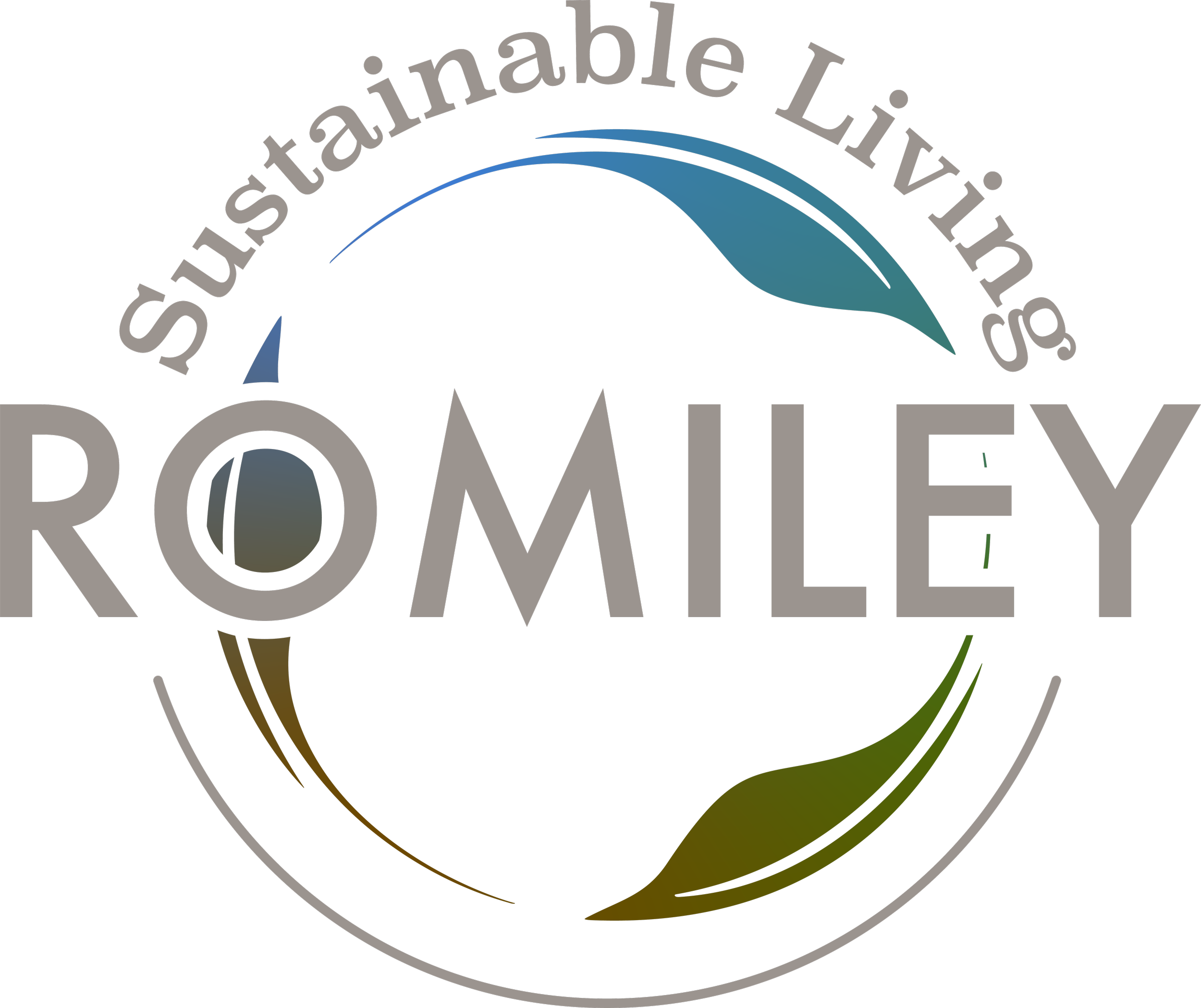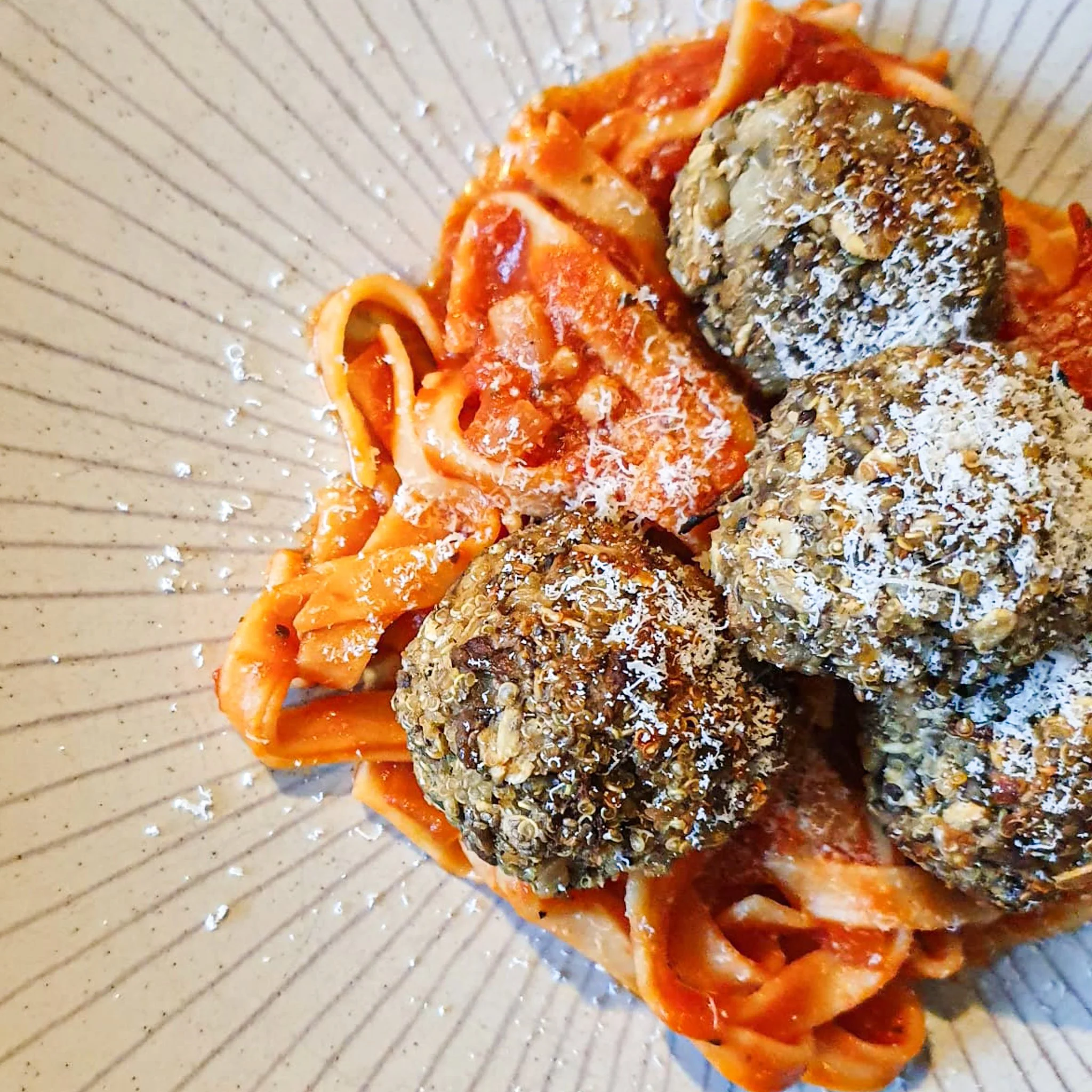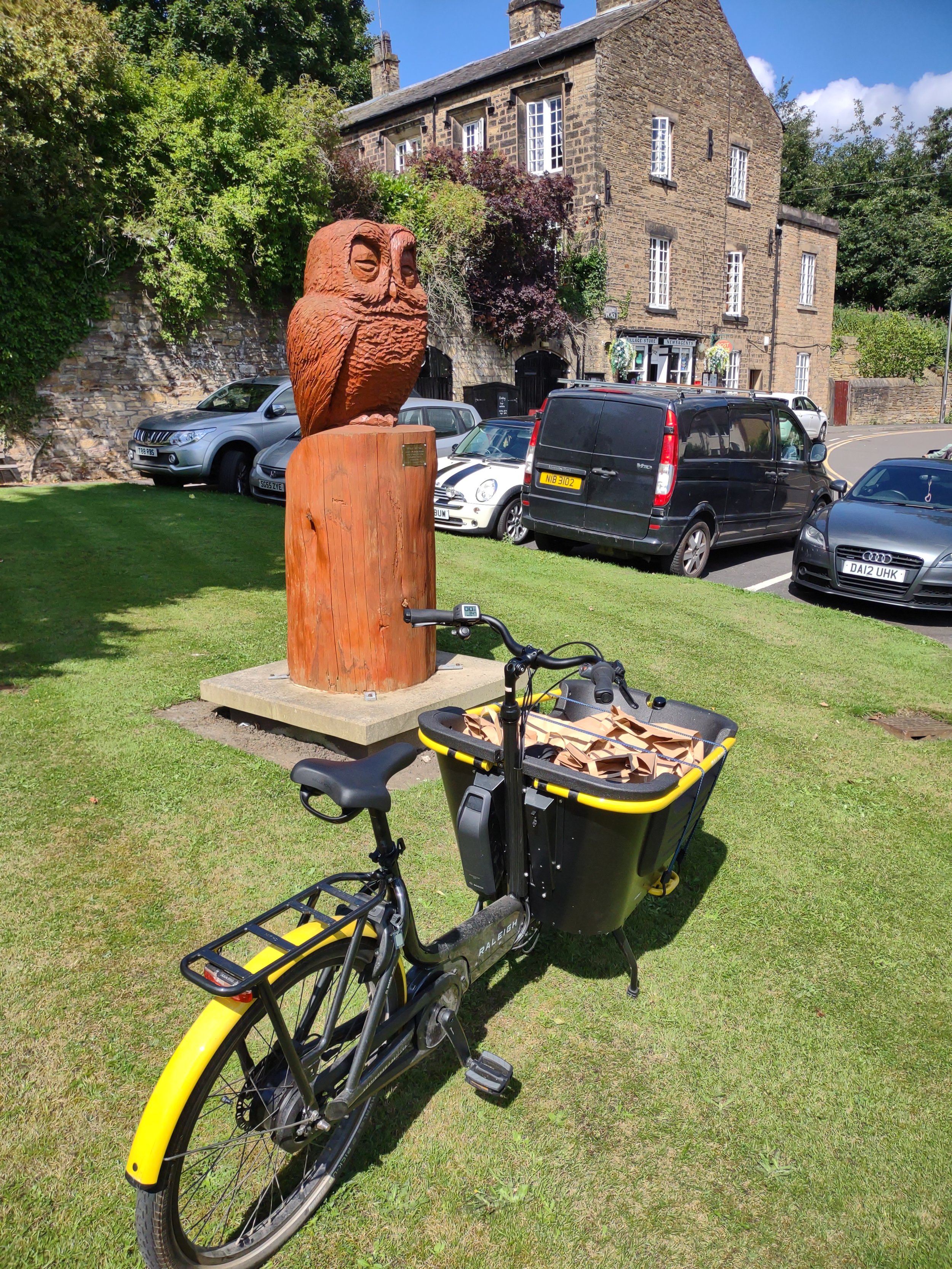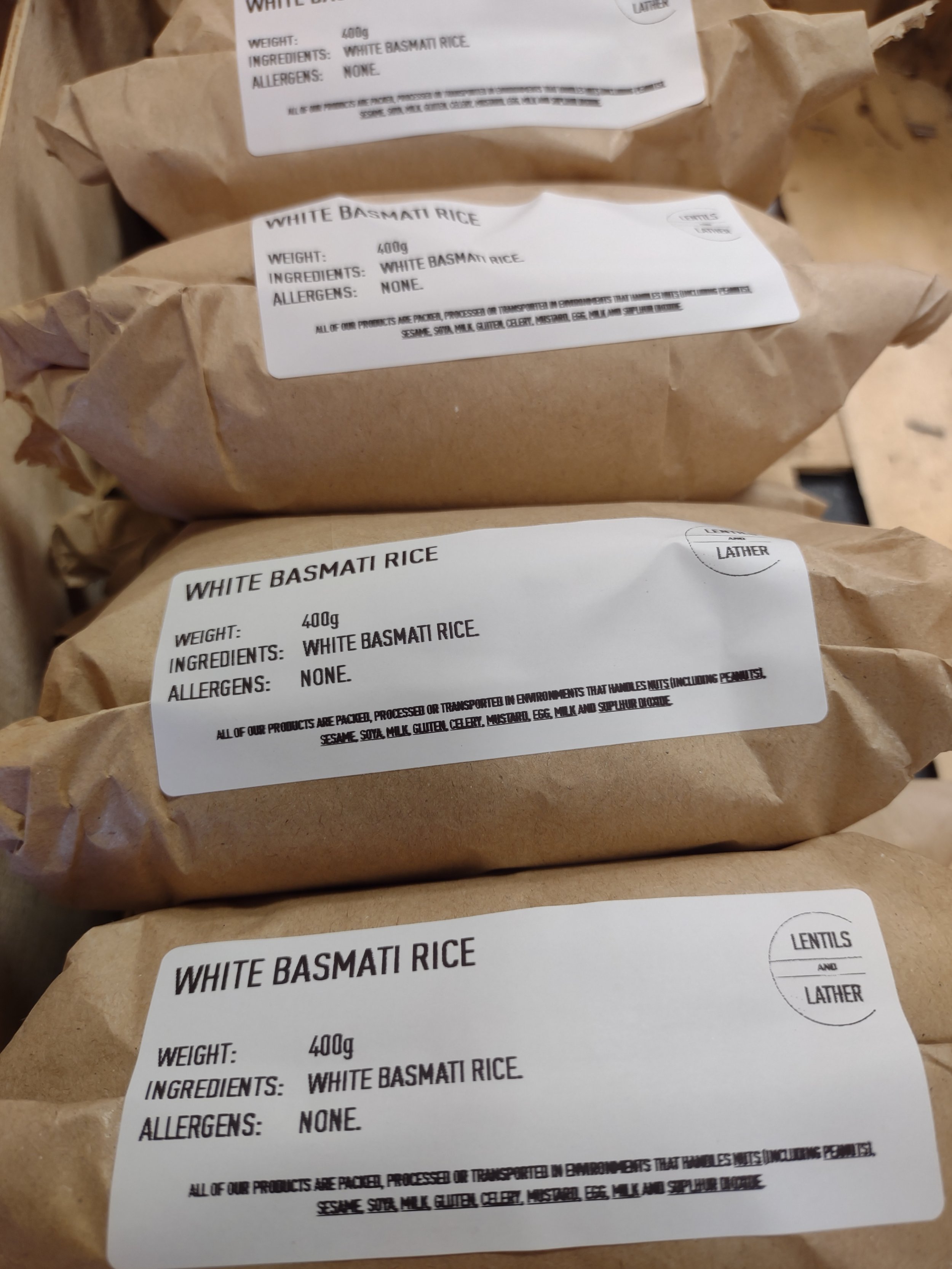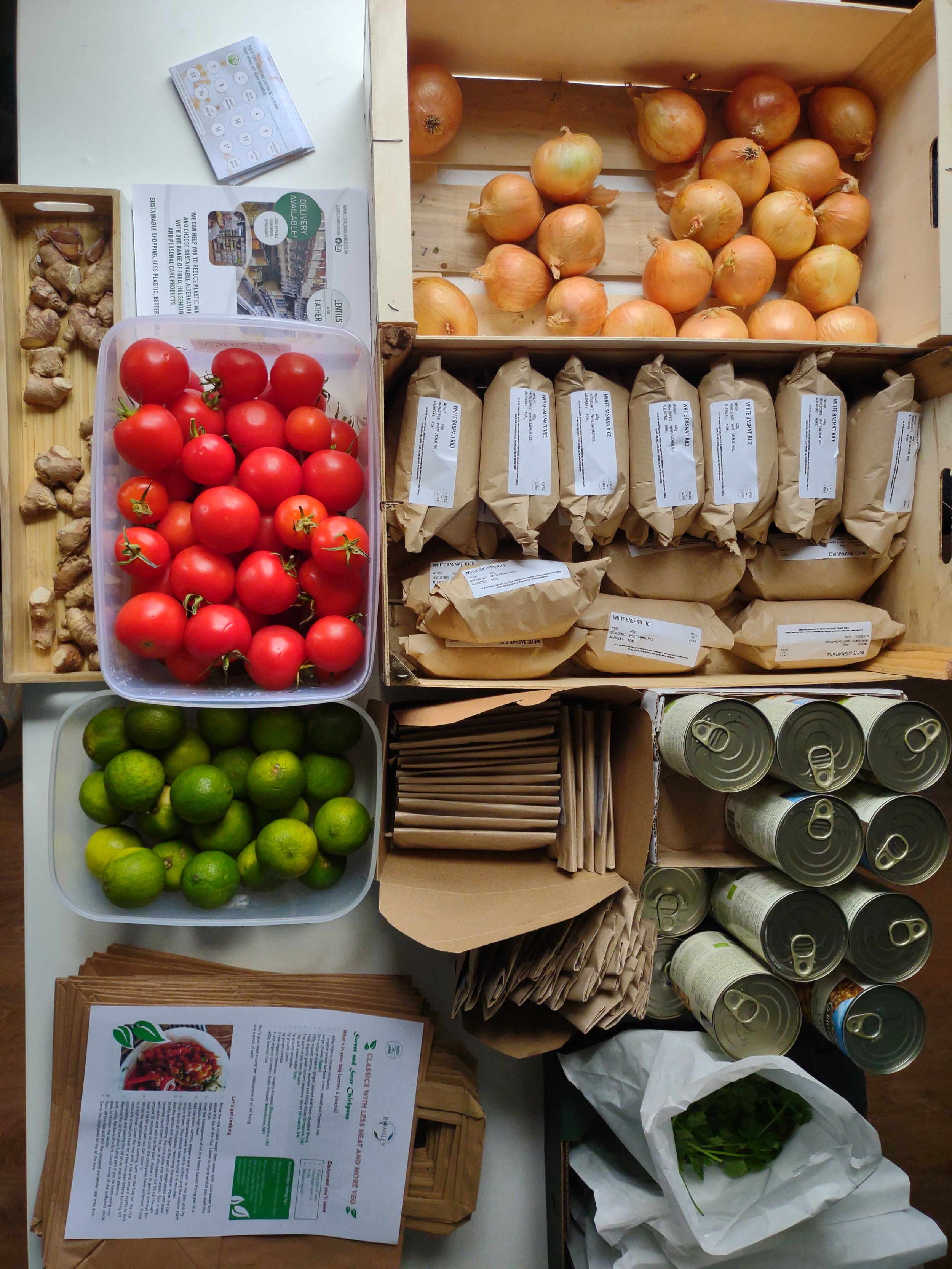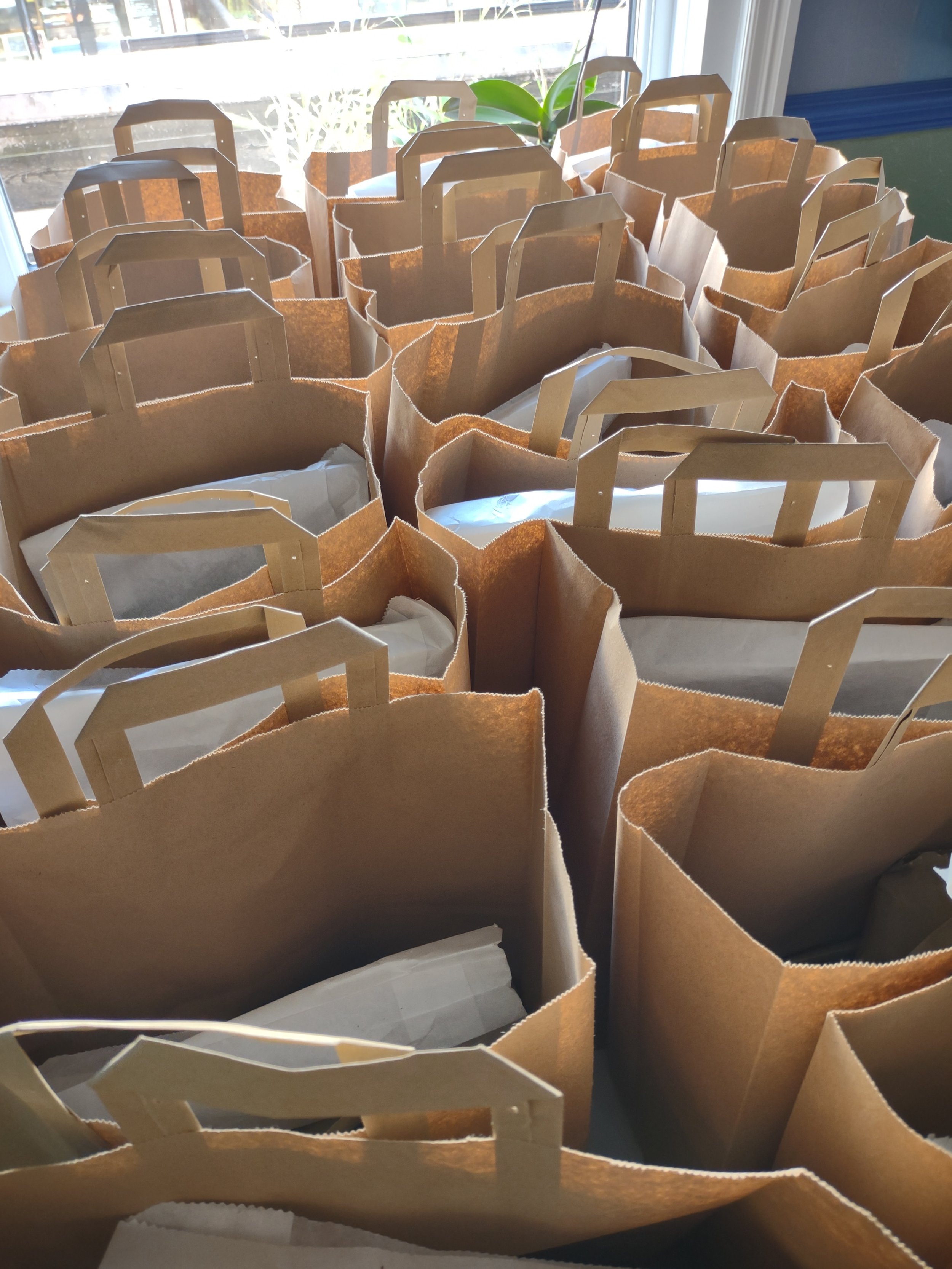SUSTAINABLE LIVING ROMILEY MEAL KITS
We were recently approached by a group of climate-concerned citizens over in Romiley, Stockport, who’d been awarded some funding through Stockport Council’s Climate Action Now (CAN) fund, which aims to help create a greener future for everyone.
Part of the criteria for the CAN fund is to encourage the use of local and seasonal produce, reduce waste and raise awareness and educate people about climate change and how it will impact lives.
When Sustainable Living Romiley (SLR) approached us we jumped at the opportunity because the above criteria form some of the fundamentals behind Lentils and Lather. Furthermore, the project allowed us to link up with a wonderful charity called the Cherry Tree Project; a youth group that provides the young people of the Cherry Tree area with regular holiday activities and also acts as a foodbank to support those who may be struggling to make ends meet.
All in all, this project offered a great opportunity to engage with different communities and demonstrate what sustainable living is all about and how it can be affordable and achievable for people from all walks of life.
We were briefed with finding classic, recognisable dishes with a twist; something that would be delicious and easy to make, but without the reliance on animal products, which are known to have a much higher carbon footprint when compared to vegetables. So far we’ve worked together on two meal kits, an Indo-chinese sweet and sour dish that replaces chicken with chickpeas and an Italian-inspired pasta meal that replaces meatballs with an aubergine-based equivalent.
For those who are interested in recreating the dish and want to jump straight in, here’s a link to the recipe.
We pulled together the meal kits using our supply chain; sourcing seasonal, local, organic produce where possible as pantry staples that we’ve always got in stock. The dishes can be tweaked though, enabling you to use what you already have in your cupboards or what’s available.
SWEET AND SOUR CHICKPEAS
The first dish we conjured up was an excellent, accessible introduction to sustainable cooking that can be knocked up in around 30 minutes. The dish is based on the classic Chinese sweet and sour dish, but has influences from Indian cooking too, so it’s not quite what you might be used to from your favourite takeaway. That doesn’t mean it’s not great though, it has a really unique flavour and we’re sure that you’ll want to make this over and over. We used classic veggies that you might commonly find in a sweet and sour dish; carrots, onions and tomatoes and we managed to source some green beans from Ormskirk, but these could be replaced with red or green peppers. Courgette, squash and broccoli would also work really well.
The kits came in at just over £5.50 each (for a family of four), demonstrating that sustainability doesn’t have to cost a fortune.
Download the recipe card here.
The SLR team found a really interesting tool hosted on the website https://myemissions.green/ that can be used to calculate the carbon footprint of any meal. When we put in the ingredients for this dish it came out as 690g CO2e (carbon dioxide equivalents) per serving. This is the standard measurement of all greenhouse gas emissions released, where each gas is given an equivalent impact compared to carbon dioxide (find out more here). 690g CO2e is regarded as “very low”, which is especially interesting when compared to sweet and sour pork (1302g CO2e) (medium footprint) and sweet and sour prawns (2413g CO2e) (very high footprint). Something that’s worth knowing about next time you reach for your phone to order a takeaway!
SPAGHETTI AU BALLS
The next dish was an adaptation of a classic Italian pasta dish, spaghetti meatballs, but but the meatballs were replaced with an aubergine, quinoa and chia seed substitute. A bit more technical and challenging than the sweet and sour chickpeas, we hope that the Cherry Tree Project users found it challenging, yet rewarding. The dish certainly provided a tasty treat for us. We managed to source lots of organic British produce for this; aubergines from Gloucestershire, quinoa from Shropshire, onions from Norfolk, British oats, even eggs from Marple. In terms of sustainability, sourcing food with minimal air miles certainly plays a large part! For the sauce, we used organic tinned tomatoes and a tablespoon of our Italian Seasoning, which is a combination of oregano, parsley, basil, thyme, garlic, sage, black pepper and sesame seeds - there’s a reason why it’s one of our best selling seasoning blends as provides a really tasty kick and is incredibly versatile.
This dish worked out slightly more expensive at £6.93 per head.
Download the recipe card here.
As for the carbon footprint for this dish, it came out at 682g CO2e per serving. A traditional beef-based spaghetti meatballs dish, however, comes out at a whopping 5837g CO2e. This is due to agricultural processes that are involved in rearing cattle; land use typically consists of mono-culture grassland, which doesn’t act like a carbon sink like a diverse forest, and of course the abundance of the highly potent animal methane emissions, which is thought up to 80 times as potent as carbon dioxide in terms of trapping the sun’s radiation in our atmosphere.
All photos used with the permission of the Cherry Tree Project.

